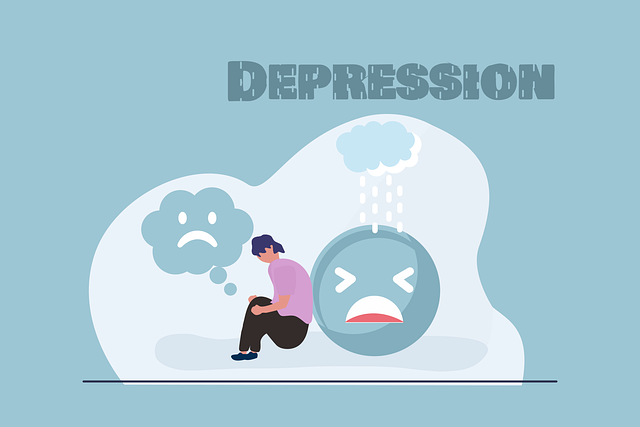In diverse communities like Longmont with a significant French-speaking population, Longmont French Speaking Therapy (LFST) is transforming mental healthcare by addressing cultural challenges and language barriers. This specialized program offers personalized, culturally responsive therapy, improving community well-being and building trust between therapists and clients. Effective healthcare requires training programs focused on cultural competency, including workshops, simulations, and ongoing support, to enhance sensitivity to unique mental wellness issues across cultures. Collaborative efforts with community leaders and public awareness campaigns ensure culturally sensitive care, benefiting all patients, especially French-speaking individuals in Longmont.
Cultural competency training is an essential aspect of modern healthcare, ensuring providers deliver patient-centered care. This article explores this critical topic, highlighting why it matters in diverse communities. We delve into specific areas such as language’s role in communication and how specialized programs, like Longmont French Speaking Therapy, enhance cultural understanding. Additionally, we provide insights into designing effective training for healthcare providers to improve overall patient experiences.
- Understanding Cultural Competency in Healthcare: Why It Matters
- The Role of Language in Patient Care and Communication
- Longmont French Speaking Therapy: A Specialized Approach
- Implementing Effective Training Programs for Healthcare Providers
Understanding Cultural Competency in Healthcare: Why It Matters

Cultural competency is an essential aspect of modern healthcare that goes beyond treating physical symptoms. It involves understanding and appreciating the cultural diversity of patients, their families, and their communities. In a city like Longmont, with a diverse population, including French-speaking individuals, this becomes even more critical. Healthcare providers who are culturally competent can offer personalized care, ensuring that every patient feels heard, respected, and supported.
This competency helps bridge the gap between healthcare services and patients from various cultural backgrounds. By incorporating self-awareness exercises and stress management techniques, mental illness stigma reduction efforts can also be enhanced. These initiatives ensure that providers not only address physical health issues but also foster an environment where mental well-being is prioritized, regardless of cultural or linguistic barriers.
The Role of Language in Patient Care and Communication

Effective patient care requires clear communication between healthcare providers and patients. Language plays a pivotal role in this process, serving as the bridge that connects cultural backgrounds, experiences, and needs. In a diverse society like Longmont, where French-speaking individuals reside, ensuring access to care in their native language is essential for accurate diagnosis and treatment. The ability to provide French speaking therapy has become increasingly important, addressing not only communication barriers but also fostering trust and comfort for patients from various cultural backgrounds.
Overcoming language obstacles in healthcare can significantly impact Mental Wellness and Mental Health Awareness. Anxiety Relief is often exacerbated by the inability to express concerns or understand medical information. Competent cross-cultural communication, including proficiency in languages like French, enables providers to build rapport, gain valuable insights into patients’ lives, and tailor treatments accordingly. This personalized approach contributes to improved outcomes and promotes a more inclusive healthcare environment.
Longmont French Speaking Therapy: A Specialized Approach

In Longmont, Colorado, a unique and specialized approach to therapy is gaining recognition among healthcare providers—the Longmont French Speaking Therapy (LFST). This innovative program caters specifically to individuals who speak French as their primary language but have struggled to access culturally responsive mental health services. LFST offers a safe and supportive environment where French-speaking clients can openly discuss their challenges, receive personalized treatment, and develop effective coping strategies.
The therapy focuses on addressing various aspects of mental well-being, including anxiety relief, positive thinking, and conflict resolution techniques, tailored to the cultural nuances and experiences of French-speaking individuals. By providing this specialized service, Longmont has taken a significant step towards ensuring that all members of its diverse community have access to quality healthcare. LFST not only bridges the language gap but also fosters understanding and trust between therapists and clients, ultimately enhancing the overall therapeutic experience.
Implementing Effective Training Programs for Healthcare Providers

Effective training programs for healthcare providers are pivotal to ensuring quality patient care, especially in diverse communities like Longmont where French-speaking populations exist. These programs should go beyond basic language skills and incorporate cultural competency, focusing on nuances of communication, beliefs, and values that differ across cultures. By offering workshops, simulations, and ongoing support, healthcare providers can develop the sensitivity needed to address mental wellness and self-esteem improvement issues unique to diverse patient groups.
Implementing these training programs requires collaboration with community leaders and organizations, leveraging resources from public awareness campaigns development initiatives, and integrating feedback from both patients and staff. Such inclusive approaches ensure that healthcare providers are well-equipped to provide empathetic, culturally sensitive care, fostering healthier relationships and outcomes for all patients, regardless of their linguistic or cultural background.
Cultural competency training is an essential aspect of modern healthcare, as it fosters better patient outcomes and strengthens the bond between providers and diverse communities. By understanding cultural nuances, healthcare professionals can offer more personalized care, especially in linguistically diverse regions like Longmont. The case for Longmont French Speaking Therapy highlights the success of specialized training programs in addressing specific cultural and language barriers. Implementing comprehensive training, as outlined in this article, ensures that healthcare providers are equipped to navigate complex patient interactions, ultimately improving access to quality care for all.














